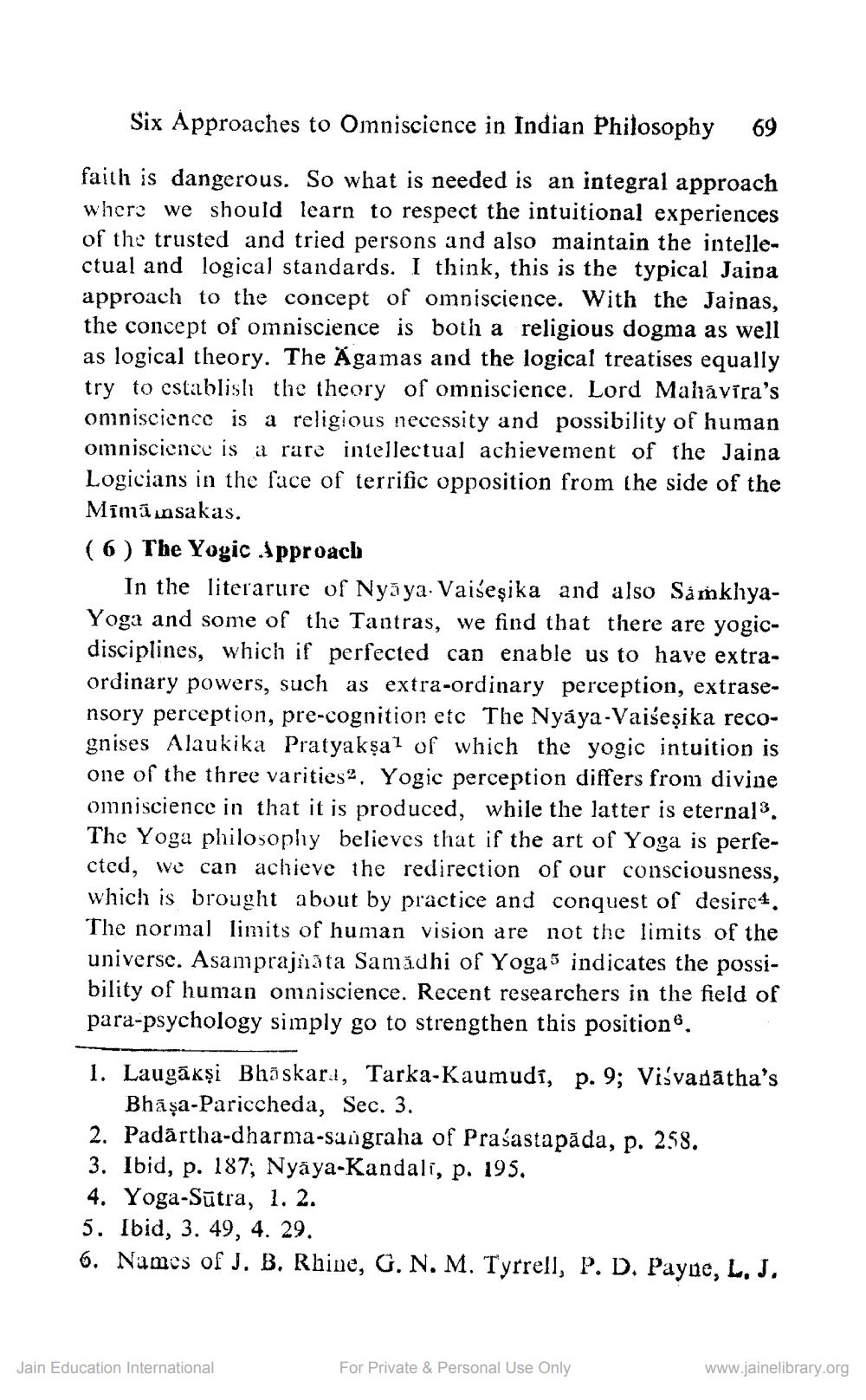________________
Six Approaches to Omniscience in Indian Philosophy 69
faith is dangerous. So what is needed is an integral approach where we should learn to respect the intuitional experiences of the trusted and tried persons and also maintain the intellectual and logical standards. I think, this is the typical Jaina approach to the concept of omniscience. With the Jainas, the concept of omniscience is both a religious dogma as well as logical theory. The Agamas and the logical treatises equally try to establish the theory of omniscience. Lord Mahavira's omniscience is a religious necessity and possibility of human omniscience is a rare intellectual achievement of the Jaina Logicians in the face of terrific opposition from the side of the Mimansakas.
(6) The Yogic Approach
In the literarure of Nyaya. Vaiśeşika and also SamkhyaYoga and some of the Tantras, we find that there are yogicdisciplines, which if perfected can enable us to have extraordinary powers, such as extra-ordinary perception, extrasensory perception, pre-cognition etc The Nyaya-Vaiśeşika recognises Alaukika Pratyakṣa1 of which the yogic intuition is one of the three varities2. Yogic perception differs from divine omniscience in that it is produced, while the latter is eternal3. The Yoga philosophy believes that if the art of Yoga is perfected, we can achieve the redirection of our consciousness, which is brought about by practice and conquest of desire4. The normal limits of human vision are not the limits of the universe. Asamprajnata Samadhi of Yoga5 indicates the possibility of human omniscience. Recent researchers in the field of para-psychology simply go to strengthen this position".
1. Laugākṣi Bhaskara, Tarka-Kaumudi, p. 9; Viśvanatha's Bhaşa-Pariccheda, Sec. 3.
2. Padartha-dharma-sangraha of Prasastapada, p. 258.
3. Ibid, p. 187, Nyaya-Kandali, p. 195.
4. Yoga-Sutra, 1. 2.
5. Ibid, 3. 49, 4. 29.
6. Names of J. B. Rhine, G. N. M. Tyrrell, P. D. Payne, L. J.
Jain Education International
For Private & Personal Use Only
www.jainelibrary.org




